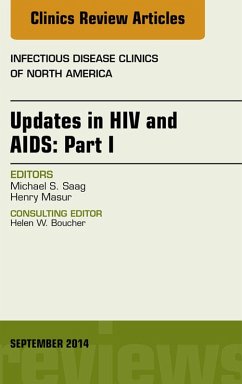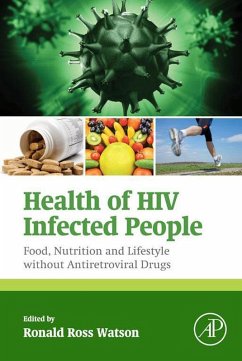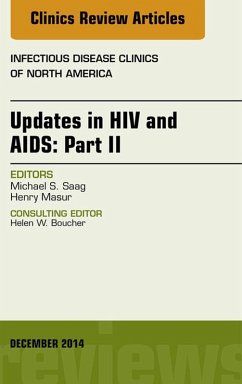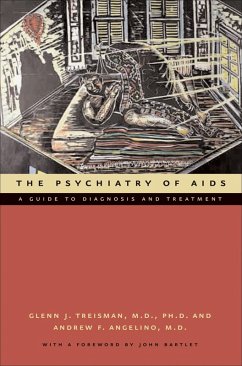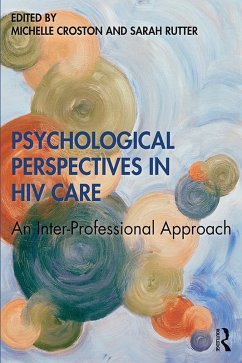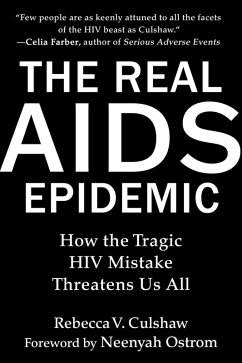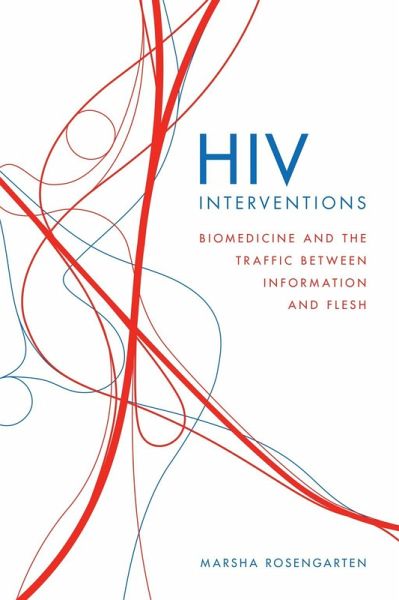
HIV Interventions (eBook, ePUB)
Biomedicine and the Traffic between Information and Flesh
Versandkostenfrei!
Sofort per Download lieferbar
25,95 €
inkl. MwSt.
Weitere Ausgaben:

PAYBACK Punkte
13 °P sammeln!
Winner of the Sociology of Health and Illness Book PrizeHIV has changed in the presence of recent biomedical technologies. In particular, the development of anti-retroviral therapies (ARVs) for the treatment of HIV was a significant landmark in the history of the disease. Treatment with ARV drug regimens, which began in 1996, has enabled many thousands to live with the human immunodeficiency virus without progressing to AIDS. Yet ARVs have also been fraught with problems of regimen compliance, viral resistance, and iatrogenic disease. Besides intensifying the technological and ethical complexi...
Winner of the Sociology of Health and Illness Book Prize
HIV has changed in the presence of recent biomedical technologies. In particular, the development of anti-retroviral therapies (ARVs) for the treatment of HIV was a significant landmark in the history of the disease. Treatment with ARV drug regimens, which began in 1996, has enabled many thousands to live with the human immunodeficiency virus without progressing to AIDS. Yet ARVs have also been fraught with problems of regimen compliance, viral resistance, and iatrogenic disease. Besides intensifying the technological and ethical complexities of medicine, the drugs have also affected conceptions of risk and risk practices, in turn presenting new challenges for prevention.
In order to devise safer, more effective forms of treatment, prevention, and possibly cure, Marsha Rosengarten asserts, it is essential to understand the relationship between HIV, medical technologies, and ideas about the body. HIV is an entity that constitutes and is constituted by complex material and informational environments. Recognition of this two-way traffic between the medical science of HIV and the expression of HIV in individuals and societies provides a novel basis for devising new or supplementary modes of thinking about and intervening in the epidemic.
Through such diverse materials as drug advertisements, pill formulations, scientific articles, clinical trials, diagnostic test results, and viral imaging as well as interviews with those living and working with HIV, Rosengarten provides numerous demonstrations of how the entities comprising the HIV epidemic - bodies, viral resistance, diagnostic results, safe sex - are forged through dynamic relations.
These various phenomena challenge existing prevention models and raise social and ethical concerns about the impact of additional technologies such as HIV pre- and post-exposure prophylaxis and the promise of vaccines and microbicides.
HIV Interventions is relevant to those engaged in questions of the social and ethical dimensions of biomedicine, biotechnology, and genomics. Further, the specific focus of the project offers HIV practitioners - in the sciences and social sciences, in clinical research, clinical practice, social research, policy development and prevention education - new perspectives and analytic tools for intercepting a virus that continues to endure and, most critically, to change in the course of doing so.
HIV has changed in the presence of recent biomedical technologies. In particular, the development of anti-retroviral therapies (ARVs) for the treatment of HIV was a significant landmark in the history of the disease. Treatment with ARV drug regimens, which began in 1996, has enabled many thousands to live with the human immunodeficiency virus without progressing to AIDS. Yet ARVs have also been fraught with problems of regimen compliance, viral resistance, and iatrogenic disease. Besides intensifying the technological and ethical complexities of medicine, the drugs have also affected conceptions of risk and risk practices, in turn presenting new challenges for prevention.
In order to devise safer, more effective forms of treatment, prevention, and possibly cure, Marsha Rosengarten asserts, it is essential to understand the relationship between HIV, medical technologies, and ideas about the body. HIV is an entity that constitutes and is constituted by complex material and informational environments. Recognition of this two-way traffic between the medical science of HIV and the expression of HIV in individuals and societies provides a novel basis for devising new or supplementary modes of thinking about and intervening in the epidemic.
Through such diverse materials as drug advertisements, pill formulations, scientific articles, clinical trials, diagnostic test results, and viral imaging as well as interviews with those living and working with HIV, Rosengarten provides numerous demonstrations of how the entities comprising the HIV epidemic - bodies, viral resistance, diagnostic results, safe sex - are forged through dynamic relations.
These various phenomena challenge existing prevention models and raise social and ethical concerns about the impact of additional technologies such as HIV pre- and post-exposure prophylaxis and the promise of vaccines and microbicides.
HIV Interventions is relevant to those engaged in questions of the social and ethical dimensions of biomedicine, biotechnology, and genomics. Further, the specific focus of the project offers HIV practitioners - in the sciences and social sciences, in clinical research, clinical practice, social research, policy development and prevention education - new perspectives and analytic tools for intercepting a virus that continues to endure and, most critically, to change in the course of doing so.
Dieser Download kann aus rechtlichen Gründen nur mit Rechnungsadresse in A, D ausgeliefert werden.






